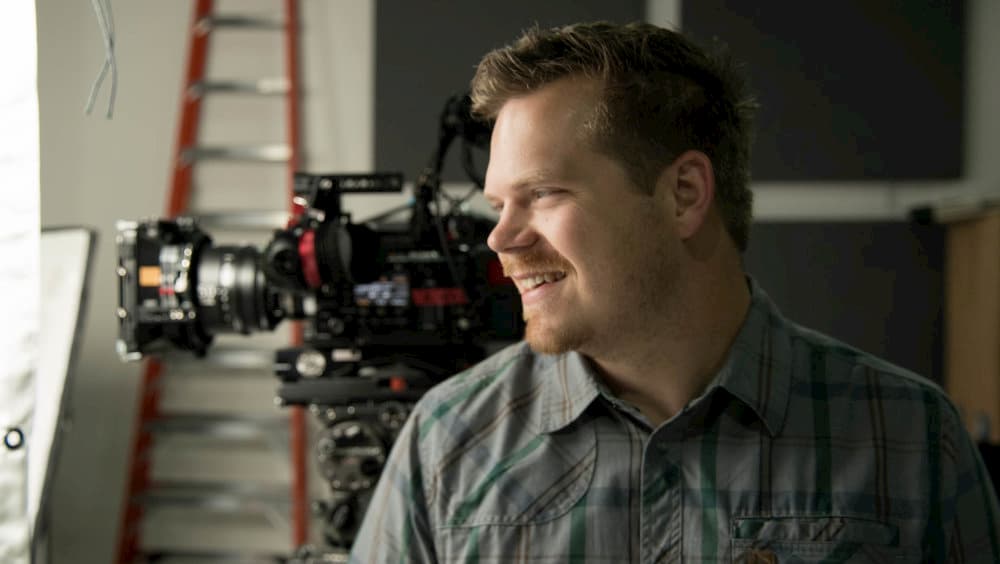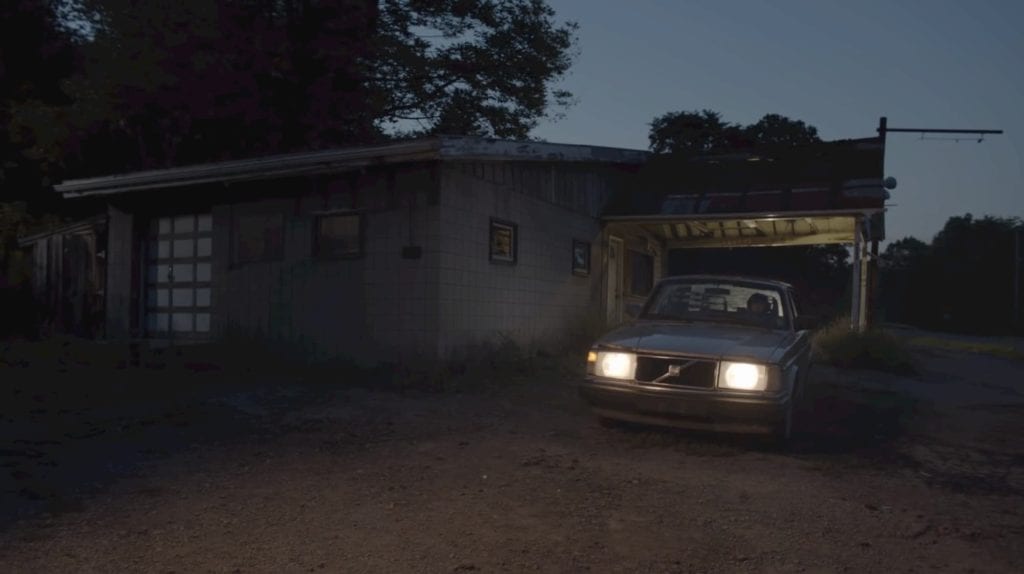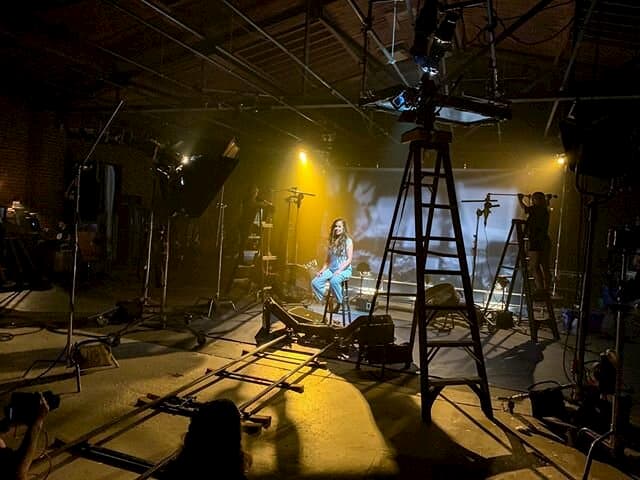Ask a DP: What Camera Is Best for a Low-Budget Film?
Many of our members in the FF Studios chat community have asked what gear they should be using on their low-budget independent short films. We said that it really depends on your budget, your project, and what you want to accomplish, and while we did recommend some gear in the chat community, we also wanted to provide a bit more real-world context.
A quick note: The Film Fund may earn a small commission if you purchase gear from the links included in this post. We’ve personally used and tested all of the gear mentioned here on real film sets, and we highly recommend it.
So we sat down with William DeJessa, one of our community members who’s also an award-winning cinematographer. William’s work has been featured by the world’s top brands, including VICE, ABC, Billboard, The Huffington Post, and E!, and his filmmaking work has screened internationally at film festivals.
We asked him questions geared (get it?) toward entry-level filmmakers, producers, and directors, but his insights also serve as a helpful review for video creators and storytellers of all skill levels.
To hire an experienced DP for your shoot like William DeJessa, check out our film funding opportunities for a chance to get up to $10,000 and other prizes to make your short.
You can read the interview as well as watch his Director of Photography reel below.
Read the interview, and check out some recommended camera and lighting equipment below:
What’s an area of cinematography where you definitely should not skimp on budget?

The number one thing(s) you should never skimp on are lenses. Lenses bring the most character and production quality to the image from a technical standpoint.
Note from the editor: The Film Fund’s founder, Thomas Verdi, purchased the Sigma 19mm F2.8 DN Micro-Four-Thirds Lens with a Tiffen 58mm ND Filter (for shooting outside) as his first lens EVER, and it’s served him well for years! He paired it with a budget-friendly Blackmagic camera that William recommends below.
You can get by with cheaper cameras, and there have been amazing films shot in entirely natural light, but the lenses are at the heart of the style.
Should indie filmmakers buy a camera or rent per production?
You need to own a camera. It doesn’t have to be the best camera, or one you plan to use on all your projects, but you need something — especially as an indie filmmaker.
Note from editor: we link to a few of William’s recommended starter/budget-friendly cameras below.
Ideally, you want a camera that you can get comfortable with and learn the quirks of. If a production can afford to rent something better, then sure, get the [Arri] Alexa, [Sony] Venice, or RED.
But don’t lose sight of the fact that the goal is to create, and don’t allow the high cost of cinema cameras to be a roadblock to practicing your craft. You need to walk before you can run, and you need to crawl even before that.
[When you’re starting out], you just need something that makes an image, and you have to make sure to not get caught up in the back-and-forth of what cameras are best and what features they have. A lot of young filmmakers get caught up in the marketing of new gear instead of creating.
Do you prefer shooting on primes or on zoom lenses? Or does this completely depend on the project and the director’s vision?

Primes vs. zooms is completely project dependent. I typically shoot documentaries with zooms and narrative films and commercials with primes. But at the same time, I’ve used zooms on narratives and commercials too. Sometimes efficiency is the priority, and you don’t have time to swing lenses and recalibrate the equipment.
Earlier this year I worked on a doc where the director wanted most of the content shot on a single wide prime. It was an interesting feel for the doc because every shot had the same spatial relationship.
If I needed to get a close-up with a character, I had to get close to the character. It created an engaging experience for the viewer and a sense that you are actually there. It always comes back to the intention of the shoot and what is best for the project at hand. That being said, stylistically I’ll always prefer primes over zooms.
Editor’s note: as mentioned above, for a good starter lens, The Film Fund founder, Thomas Verdi, recommends the Sigma 19mm F2.8 DN Micro-Four-Thirds Lens with a Tiffen 58mm ND Filter (for shooting outside).
Do you have a certain brand of camera you like to shoot on at the micro-budget level?
When it comes to micro-budget filmmaking, the best camera you can use is the one you have access to. I think Blackmagic has done some amazing things with their line of Pocket Cinema Cameras.
Note from editor: Check out the line of Blackmagic Pocket Cinema Cameras below.
Blackmagic Pocket Cinema Camera 6K
Blackmagic Pocket Cinema Camera 4K
Blackmagic Pocket Cinema Camera
If that is out of the budget, though, a smartphone like the iPhone X and iPhone 11 are amazing tools as well.
There are few apps I’d recommend downloading that can help unlock manual control settings for the camera. Filmic Pro is one that comes to mind.
Note from editor: If you really want to increase the iPhone’s potential as a cinema camera, you can attach Moment lenses to the camera to get macro shots, wide shots, telephoto, anamorphic, and even fisheye. We’ve actually used these on big shoots with great results!
Let’s say I have $400 for camera equipment for a one-day shoot. What’s a camera and lighting package you would recommend?

With a $400 camera and lighting budget, I’d recommend renting the following:
- Camera: Blackmagic Pocket Cinema Camera 4K, a Canon 5D, or a Sony A7s ii with a Canon zoom lens 24-70,
- SmallHD 502 monitor
- Some basic grip gear (stands / clamps with bounces and flags (Matthews RoadRag Kit is a great option)
- Aputure 300D light with softbox attachment.
Any other advice you’d like to add regarding spending money on the camera department and choosing gear?
When it comes to buying equipment, there are a few things to think about. For starters, why are you buying the equipment? Is this something you want personally to aid you in your craft, or is it an investment in a package you plan to rent to productions?
Ideally you want to buy something that can do both — a piece of equipment that you will personally use on a regular basis but that can also get a rental / kit fee if you bring it onto a production.
If it’s something you plan to rent out, you need to do a cost analysis. Find out how much it costs to buy, what it rents for, how often it will rent, and how many rentals it will be until it’s paid off. If you can’t make a profit on your equipment in a reasonable amount of time, you can’t continue to grow.
You can check out William DeJessa’s full portfolio at his website.
Need funding for some gear to make your short? Check out our film funding opportunities here. Write one sentence for a chance to get up to $10,000 and other prizes to make your short film.